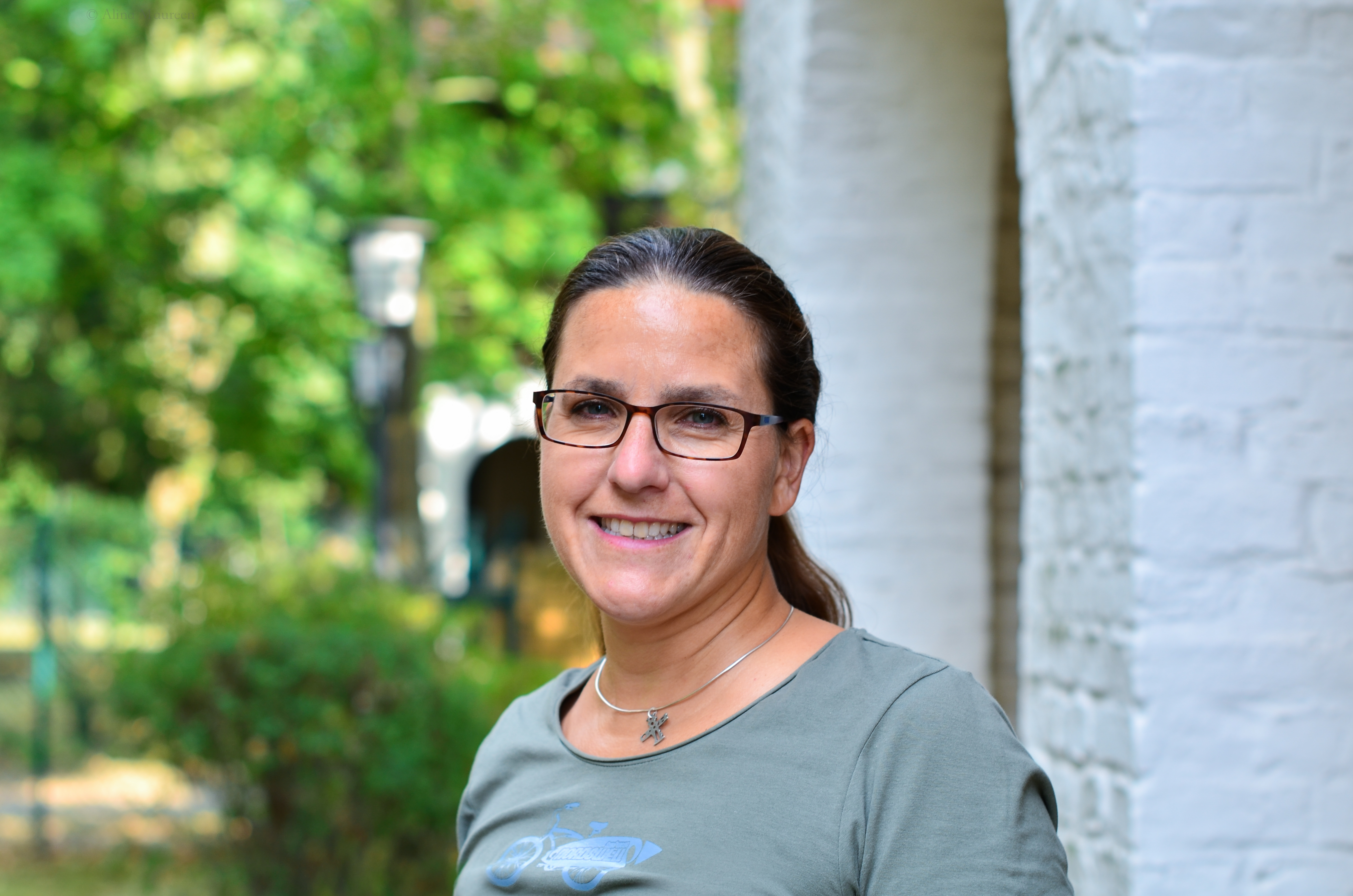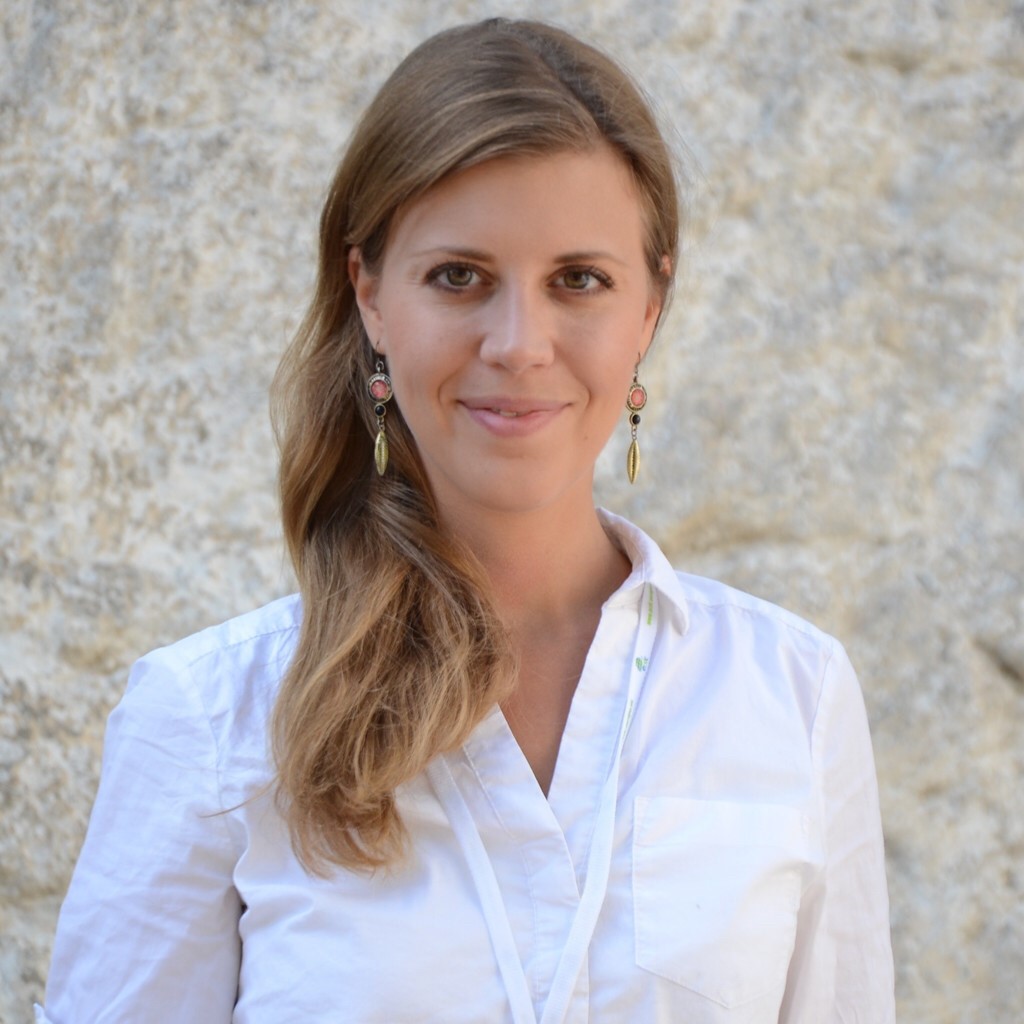Profile Scientific Advisory Board 2025
PD Dr. met. vet. habil. Benjamin Bauer
Institution: Friedrich-Loeffler-Institut, Institut für Immunologie, Greifswald – Insel Riems
Expertise: Veterinärmedizin, Klinische Infektiologie und Immunologie, vektor-übertragene Zoonosen, Parasitologie, Epidemiologie
Forschungsinteresse: Entwicklung und Einsatz von Vaccinen gegen bakterielle Erreger bei Wiederkäuern, Immunantworten und -pathogenese von Coxiella burnetii, Zeckenübertragene Pathogene bei kleinen Wiederkäuern
1. Bauer BU, Herms TL, Jahnke R, Ossowski N, Walter MC, Frangoulidis D, Runge M, Ganter M, Knittler MR (2024): Control of Coxiella burnetii shedding in a dairy goat herd by annual offspring vaccination. Vaccine 42, 126125. https://doi.org/10.1016/j.vaccine.2024.07.026
2. Böttcher J, Bauer BU, Ambros C, Alex M, Domes U, Roth S, Boll K, Korneli M, Bogner K-H, Randt A, Janowetz B (2024): The immune response to a Coxiella burnetii vaccine in sheep varies according to their natural pre-exposure. Vaccine 40, 1993-2003. https://doi.org/10.1016/j.vaccine.2024.02.048
3. Bauer BU, Peter M, Herms TL, Runge M, Wohlsein P, Jensen TK, Ganter M (2024): Detection of Coxiella burnetii in the mammary gland of a dairy goat. Vet Res Commun 48, 1341-1352. https://doi.org/10.1007/s11259-023-10233-8
4. Bauer BU, Knittler MR, Andrack J, Berens C, Campe A, Christiansen B, Fasemore AM, Fischer SF, Ganter M, Körner S, Makert GR, Matthiesen S, Mertens-Scholz K, Rinkel S, Runge M, Schulze-Luehrmann J, Ulbert S, Winter F, Frangoulidis D, Lührmann A (2023): Interdisciplinary studies on Coxiella burnetii: From Molecular to Cellular, to Host, to One Health Research. Int J Med Microbiol 313, 151590. https://doi.org/10.1016/j.ijmm.2023.151590
5. Bauer BU, Schwecht KM, Janke R, Matthiesen S, Ganter M, Knittler MR (2023): Humoral and cell-mediated immune response in sheep after application of an inactivated Coxiella burnetii Phase I vaccine. Vaccine 41, 4798-4807. https://doi.org/10.1016/j.vaccine.2023.06.061
6. Bauer BU, Könenkamp L, Stöter M, Wolf A, Ganter M, Runge M (2021): Increasing awareness for tick-borne encephalitis virus using small ruminants as suitable sentinels: preliminary observations. One Health 12, 100227. https://doi.org/10.1016/j.onehlt.2021.100227

apl. Prof. Dr. Simone Bergmann
Institution: Institut für Mikrobiologie, TU Braunschweig
Expertise: Infektionsbiologie, Medizinische Mikrobiologie, zoonotische Streptokokken-Infektionen, Pneumokokken-Wirt-Interaktionen, Funktion bakterieller Oberflächenproteine, Bakterielle Interaktion mit Fibrinolyse- und Koagulationsfaktoren des Wirts
Forschungsinteresse: Charakterisierung der Pathogenitätsmechanismen von Streptokokken im Rahmen zoonotischer Wirtsinfektionen, Aufklärung der Interaktion von pathogenen Bakterien mit gefäßauskleidendem Endothel unter Simulation der Strömungsbedingungen im Blutfluss, Immunfluoreszenz und mikroskopische Visualisierung von bakteriellen Infektionsprozessen mit Endothel- und Epithel-Zellkulturen in Echtzeit, funktionelle biochemische Charakterisierung der Funktion bakterieller und Wirtsfaktoren im Infektionsprozess, Effekte der Pathogene auf Fibrinolyse und Hämostase, Aufklärung der Funktion extrazellulärer Matrixproteine in der bakteriellen Pathogen-Wirt-Interaktion
Jagau, H., Behrens, I.K., Lahme, K., Lorz G., Köster, R.W., Schneppenheim, R., Obser, T., Brehm, M.A., König, G., Kohler, T.P., Rohde, M., Frank, R., Tegge, W., Fulde, M., Hammerschmidt, S., Steinert, M., and Bergmann*, S. (2019a) Von Willebrand factor mediates pneumococcal aggregation and adhesion in blood flow, Frontiers in Microbiology, 26 (10): 511.
Jagau, H., Behrens, I.K., Steinert, M., and Bergmann*, S. (2019b) Pneumococcus infection of primary human endothelial cells in constant flow, Journal of Visualized Experiments, In Press.
Bergmann, S., Eichhorn, I., Kohler, T.P., Hammerschmidt, S., Goldmann, O., Rohde, M., Fulde, M. (2017) SCM, the M protein of Streptococcus canis binds Immunoglobulin G. Frontiers in Cellular and Infection Microbiology, 28 (7): 80.
Fulde, M., Bergmann*, S. (2017) “Impact of Streptococcal Enolase in Virulence, Section 3: Protein Moonlighting in bacterial virulence” In: “Moonlighting Proteins: Novel Virulence Factors in Bacterial Infections” Edt. Brian Henderson, Wiley Inc. Chapter 16, ISBN: 978-1-118-95111-8.
Beims, H., Overmann, A., Fulde, M., Steinert, M., and Bergmann*, S. (2016) Isolation of Staphylococcus sciuri from horse skin infection. Open Veterinary Journal, 6(3): 242-246.
Zakrzewicz*, D., Bergmann**, S., Didiasova, M., Giaimo, B.D., Borggrefe, T., Mieth, M., Hocke, A. C., Lochnit, G., Preissner, K.T., Wygrecka M. (2016) Host-derived extracellular RNA promotes adhesion of Streptococcus pneumoniae to endothelial and epithelial cells Scientific Reports, 28(6): 37758. **) shared first authorship
Bergmann, S., Steinert, M. (2015) From Single Cells to Engineered and Explanted Tissues: New Perspectives in Bacterial Infection Biology International Review of Cell & Molecular Biology (IRCMB), 319: 1-44.
Bergmann S., Agarwal, V., Hammerschmidt S. (2015) "Exploitation of Host Signal Transduction Pathways Induced by Streptococcus pneumoniae" In: "Streptococcus pneumoniae", Eds.: J.S. Brown, S. Hammerschmidt and C. Orihuela; Elsevier, pp. 347-358, ISBN-978-0-12-410530-0.
Fulde, M., Bernardo-García, N., Rohde, M., Nachtigall, N., Frank, R., Preissner, K.T., Klett, J., Morreale, A., Chhatwal, G.S., Hermoso, J.A., and Bergmann*, S. (2014) Pneumococcal phosphoglycerate kinase interacts with plasminogen and its tissue activator. Thrombosis and Haemostasis, 111(3): 401-16.
Fulde, M., Steinert, M., Bergmann*, S. (2013) Functional similarities of streptococcal plasminogen binding proteins in plasminogen interaction, Frontiers in Cellular and Infection Microbiology, 3: 85.
Dr. Jörg Fritzemeier
Institution: Veterinärdienst für Stadt und Landkreis Osnabrück
Expertisen: Öffentliches Veterinärwesen, Epidemiologie, Virologie
Forschungsinteressen:
Claudia Filippone, Guillaume Castel, Séverine Murri, Myriam Ermonval, Misa Korva, Tatjana Avšič-Županc, Tarja Sironen, Olli Vapalahati, Lorraine M. McElhinney, Rainer G. Ulrich, Martin H. Groschup, Valérie Caro, Frank Sauvage, Sylvie van der Werf, Jean-Claude Manuguerra, Antoine Gessain, Philippe Marianneau, Noël Tordo. Revisiting the genetic diversity of emerging hantaviruses circulating in Europe using a pan-viral resequencing microarray. Sci Rep. 2019; 9: 12404. Published online 2019 Aug 27. doi: 10.1038/s41598-019-47508-7
Friederike Michel, Michael Sieg, Dominik Fischer, Markus Keller, Martin Eiden, Maximilian Reuschel, Volker Schmidt, Rebekka Schwehn, Monika Rinder, Sylvia Urbaniak, Kerstin Müller, Martina Schmoock, Renke Lühken, Patrick Wysocki, Christine Fast, Michael Lierz, Rüdiger Korbel, Thomas W. Vahlenkamp, Martin H. Groschup, Ute Ziegler. Evidence for West Nile Virus and Usutu Virus Infections in Wild and Resident Birds in Germany, 2017 and 2018. Viruses. 2019 Jul; 11(7): 674. Published online 2019 Jul 23. doi: 10.3390/v11070674
Christine Fast, Markus Keller, Martin Kaatz, Ute Ziegler, Martin H. Groschup. Low levels of classical BSE infectivity in rendered fat tissue. Vet Res. 2018; 49: 122. Published online 2018 Dec 20. doi: 10.1186/s13567-018-0618-7
Josephine Schlosser, Lisa Dähnert, Paul Dremsek, Kerstin Tauscher, Christine Fast, Ute Ziegler, Albrecht Gröner, Rainer G Ulrich, Martin H Groschup, Martin Eiden. Different Outcomes of Experimental Hepatitis E Virus Infection in Diverse Mouse Strains, Wistar Rats, and Rabbits. Viruses. 2019 Jan; 11(1): 1. Published online 2018 Dec 20. doi: 10.3390/v11010001
Nicholas Johnson, Mar Fernández de Marco, Armando Giovannini, Carla Ippoliti, Maria Luisa Danzetta, Gili Svartz, Oran Erster, Martin H. Groschup, Ute Ziegler, Ali Mirazimi, Vanessa Monteil, Cecile Beck, Gaelle Gonzalez, Sylvie Lecollinet, Houssam Attoui, Sara Moutailler. Emerging Mosquito-Borne Threats and the Response from European and Eastern Mediterranean Countries. Int J Environ Res Public Health. 2018 Dec; 15(12): 2775. Published online 2018 Dec 7. doi: 10.3390/ijerph15122775
Lisa Dähnert, Martin Eiden, Josephine Schlosser, Christine Fast, Charlotte Schröder, Elke Lange, Albrecht Gröner, Wolfram Schäfer, Martin H. Groschup. High sensitivity of domestic pigs to intravenous infection with HEV. BMC Vet Res. 2018; 14: 381. Published online 2018 Dec 4. doi: 10.1186/s12917-018-1713-8
Anne Balkema-Buschmann, Melanie Rissmann, Nils Kley, Reiner Ulrich, Martin Eiden, Martin H. Groschup. Productive Propagation of Rift Valley Fever Phlebovirus Vaccine Strain MP-12 in Rousettus aegyptiacus Fruit Bats. Viruses. 2018 Dec; 10(12): 681. Published online 2018 Nov 30. doi: 10.3390/v10120681
Dorothee E. Scheuch, Mandy Schäfer, Martin Eiden, Eva C. Heym, Ute Ziegler, Doreen Walther, Jonas Schmidt-Chanasit, Markus Keller, Martin H. Groschup, Helge Kampen. Detection of Usutu, Sindbis, and Batai Viruses in Mosquitoes (Diptera: Culicidae) Collected in Germany, 2011–2016. Viruses. 2018 Jul; 10(7): 389. Published online 2018 Jul 23. doi: 10.3390/v10070389
Friederike Michel, Dominik Fischer, Martin Eiden, Christine Fast, Maximilian Reuschel, Kerstin Müller, Monika Rinder, Sylvia Urbaniak, Florian Brandes, Rebekka Schwehn, Renke Lühken, Martin H. Groschup, Ute Ziegler. West Nile Virus and Usutu Virus Monitoring of Wild Birds in Germany. Int J Environ Res Public Health. 2018 Jan; 15(1): 171. Published online 2018 Jan 22. doi: 10.3390/ijerph15010171

Prof. Dr. Elke Hertig
Institution: Professur für Regionalen Klimawandel und Gesundheit, Medizinische Fakultät, Universität Augsburg
Expertise: Environmental Health Sciences an der Schnittstelle zwischen physikalischer Klimaforschung und Gesundheitsforschung. Lokale bis regionale Auswirkungen von Klima- und Umweltfaktoren auf Vektoren und vektorübertragene Krankheiten und ihre Veränderungen im Kontext des globalen Klimawandels.
Forschungsinteresse: Regionaler/ lokaler Klimawandel, Klimavariabilität, Statistisches Downscaling, Urbane Räume, Temperaturextreme, Anthropogene Luftinhaltsstoffe, Klima- und Umweltfaktoren vektorübertragener Krankheiten
Fairweather, V., Hertig, E., Traidl-Hoffmann, C. (2020): A brief introduction to climate change and health. Allergy, DOI: 10.1111/all.14511
Schilling, J., Hertig, E., Tramblay, Y., Scheffran, J. (2020): Climate Change Vulnerability, Water Resources and Social Implications in North Africa. Regional Environmental Change. DOI: https://doi.org/10.1007/s10113-020-01597-7
Hertig, E. (2019): Distribution of Anopheles vectors and potential malaria transmission stability in Europe and the Mediterranean area under future climate change. Parasites & Vectors 12(1), 18.
Hertig, E., Maraun, D., Bartholy, J., Pongracz, R., Vrac, M., Mares, I., Gutiérrez, J.M., Wibig, J., Casanueva, A., Soares, P.M.M. (2018): Validation of extremes from the Perfect-Predictor Experiment of the COST Action VALUE. Int. J. Climatol. DOI: 10.1002/joc.5469.
Gutiérrez, J.M., Maraun, D., Widmann, M., Huth, R., Hertig, E., Benestad, R., Roessler, O., Wibig, J., Wilcke, R., Kotlarski, S. and San Martín, D. (2018): An intercomparison of a large ensemble of statistical downscaling methods over Europe: Results from the VALUE perfect predictor cross‐validation experiment. International Journal of Climatology. DOI: 10.1002/joc.5462
Katja Hille, Dr. rer. nat., M.Sc. Epidemiology
Institution:
Niedersächsisches Landesgesundheitsamt
Infektionsepidemiologie und -surveillance
Expertise: Epidemiologie, One Health, Zoonosen
Forschungsinteresse: Sektorübergreifende Integration von Daten zu zoonotischen Erregern, Lebensmittelbedingte Infektionen, Antibiotikaresistenz
https://www.researchgate.net/profile/Katja-Hille
Schnepf A, Hille K, van Mark G, Winkelmann T, Remm K, Kunze K, Velleuer R, Kreienbrock L. Basis for a One Health Approach—Inventory of Routine Data Collections on Zoonotic Diseases in Lower Saxony, Germany. Zoonotic Diseases. 2024;4(1):57–73. doi:10.3390/zoonoticdis4010007
Reinoso Schiller N, Usipbekova K, Hille K, Dreesman J, Schwarz K, Reimers K, Feil F, Scheithauer S. Pandemic management: Analysis of availability and relevance of surveillance indicators by COVID-Task-Forces in the German federal state of Lower Saxony. Infection Prevention in Practice. 2023;5(3):100294. doi:10.1016/j.infpip.2023.100294
Mitrenga S, Popp J, Becker A, Hartmann M, Ertugrul H, Sartison D, Deutsch S, Meemken D, Kreienbrock L, Hille K. Veterinary drug administration in German veal calves: An exploratory study on retrospective data. Preventive Veterinary Medicine. 2020;183105131. doi:10.1016/j.prevetmed.2020.105131
Hille K, Roschanski N, Ruddat I, Woydt J, Hartmann M, Rösler U, Kreienbrock L. Investigation of potential risk factors for the occurrence of Escherichia coli isolates from German fattening pig farms harbouring the mcr-1 colistin–resistance gene. International Journal of Antimicrobial Agents. 2018;51(2):177–80. doi:10.1016/j.ijantimicag.2017.08.007
Hille K, Ruddat I, Schmid A, Hering J, Hartmann M, Münchhausen C v., Schneider B, Messelhäusser U, Friese A, Mansfeld R, Käsbohrer A, Hörmansdorfer S, Roesler U, Kreienbrock L. Cefotaxime-resistant E. coli in dairy and beef cattle farms—Joint analyses of two cross-sectional investigations in Germany. Preventive Veterinary Medicine. 2017;14239–45. doi:10.1016/j.prevetmed.2017.05.003

Dr. Uli Klümper
Institution: TU Dresden – Institut für Hydrobiologie
Expertisen: Antibiotikaresistenzen, Mikrobielle Ökologie, Umweltmikrobiologie, Evolution von Bakterien, Plasmide, Horizontaler Gentransfer
Forschungsinteressen:
Mein Forschungsschwerpunkt liegt auf der Ausbreitung von Antibiotikaresistenzen, insbesondere der zugrunde liegenden ökologischen und evolutionären Prozesse, mit einem besonderen Fokus auf die Umwelt. Besonders interessiere ich mich für die Verbreitung und Selektionsdynamiken von Resistenzgenen und Plasmiden in komplexen mikrobiellen Gemeinschaften sowie für Umweltfaktoren, die deren Häufigkeit begünstigen. Darüber hinaus entwickle ich methodische und konzeptionelle Ansätze zur verbesserten Überwachung von Antibiotikaresistenzen in der Umwelt und zur Bewertung der Risiken, die von Antibiotikabelastungen im Hinblick auf die Selektion von Resistenzen ausgehen.
- Tskhay, Faina; Köbsch, Christoph; Elena, Alan Xavier; Bengtsson-Palme, Johan; Berendonk, Thomas Ulrich; Klümper, Uli* - Fish are poor sentinels for surveillance of riverine antimicrobial resistance – One Health – 2025 – HTTP://WWW.DOI.ORG/10.1016/j.onehlt.2025.101026
- Fang, Peiju; Konyali, Diala; Fischer, Emily; Mayer, Robin Pascal; Huang, Jin; Elena, Alan Xavier; Orzechowski, Gerit H; Tony-Odigie, Andrew; Kneis, David; Dalpke, Alexander H; Krebs, Peter; Li, Bing; Berendonk, Thomas Ulrich; Klümper, Uli* - Effects of cigarette-derived compounds on the spread of antimicrobial resistance in artificial human lung sputum medium, simulated environmental media and wastewater - Environmental Health Perspectives - 2025 - HTTP://WWW.DOI.ORG/10.1289/EHP14704
- Elena, Alan X.; Orel, Neža; Fang, Peiju; Herndl, Gerhard J.; Berendonk, Thomas U.; Tinta, Tinkara; Klümper, Uli* - Jellyfish blooms - an overlooked hotspot and potential vector for the transmission of antimicrobial resistance in marine environments - mSystems - 2025 - HTTP://WWW.DOI.ORG/10.1128/msystems.01012-24
- Klümper, Uli*; Gionchetta, Giulia; Catao, Elisa CP; Bellanger, Xavier; Dielacher, Irina; Elena, Alan X.; Fang, Peiju; Galazka, Sonia; Goryluk-Salmonowicz, Agata; Kneis, David; Okoroafor, Uchechi; Radu, Elena; Szadziul, Mateusz; Szekeres, Edina; Teban-Man, Adela; Coman, Cristian; Kreuzinger, Norbert; Popowska, Magdalena; Vierheilig, Julia; Walsh, Fiona; Woegerbauer, Markus; Bürgmann, Helmut; Merlin, Christophe; Berendonk, Thomas Ulrich - Environmental microbiome diversity and stability is a barrier to antimicrobial resistance gene accumulation - Communications Biology - 2024 - HTTP://WWW.DOI.ORG/10.1038/s42003-024-06338-8
- Bagra, Kenyum; Kneis, David; Padfield, Dan; Szekeres, Edina; Teban-Man, Adela; Coman, Cristian; Singh, Garghi; Berendonk, Thomas U.; Klümper, Uli* - Contrary effects of increasing temperatures on the spread of antimicrobial resistance in river biofilms - mSphere - 2024 - HTTP://WWW.DOI.ORG/10.1128/msphere.00573-23
- Bagra, Kenyum; Bellanger, Xavier; Merlin; Christophe; Singh, Gargi; Berendonk, Thomas; Klümper, Uli* - Environmental stress increases the invasion success of antimicrobial resistant bacteria in river microbial communities - Science of the Total Environment - 2023 - HTTP://WWW.DOI.ORG/10.1016/j.scitotenv.2023.166661
- de la Cruz Barron, Magali; Kneis, David; Elena, Alan Xavier; Bagra, Kenyum; Berendonk, Thomas Ulrich; Klümper, Uli* - Quantification of the mobility potential of antibiotic resistance genes through multiplexed ddPCR linkage analysis - FEMS Microbiology Ecology - 2023 - HTTP://WWW.DOI.ORG/10.1093/femsec/fiad031
- Kampouris, Ioannis D; Agrawal, Shelesh; Orschler, Laura; Cacace, Damiano; Kunze, Steffen; Berendonk, Thomas U; Klümper, Uli* - Antibiotic resistance gene load and irrigation intensity determine the impact of wastewater irrigation on antimicrobial resistance in the soil microbiome - Water Research - 2021 - HTTP://WWW.DOI.ORG/10.1016/j.watres.2021.116818
- Klümper, Uli*; Recker, Mario; Zhang, Lihong; Yin, Xiaole; Zhang, Tong; Buckling, Angus; Gaze, William H - Selection for antimicrobial resistance is reduced when embedded in a natural microbial community - The ISME journal - 2019 - HTTP://WWW.DOI.ORG/10.1038/s41396-019-0483-z
- Klümper, Uli*; Riber, Leise; Dechesne, Arnaud; Sannazzarro, Analia; Hansen, Lars H; Sørensen, Søren J; Smets, Barth F - Broad host range plasmids can invade an unexpectedly diverse fraction of a soil bacterial community - The ISME Journal- 2015 - HTTP://WWW.DOI.ORG/10.1038/ismej.2014.191

Prof. Dr. Fabian Leendertz
Institution: Helmholtz Institut für One Health (HIOH) Greifswald
Expertise: Fachtierarzt für Mikrobiologie; Zoonotische Infektionen in den Tropen, Epidemiologie, Ökologie, Wildtierkrankheiten, umfassende Surveillance bei Mensch und Tier
Forschungsinteresse: Zoonotische Infektionen bei Mensch und Tier in den Tropen sowie ökologischen und demographischen Faktoren, die diese beeinflussen. Wir arbeiten stets im Rahmen des "One Health" Konzeptes und in enger Kooperation mit unseren afrikanischen Partnern.
Schwerpunktaktivitäten im Ausland: Côte d'Ivoire, Demokratische Republik Kongo, Zentralafrikanische Republik, Gabun
Zeggini E, …, Leendertz FH, …, Peters A. 2025. Helmholtz Health taskforce to strengthen prevention research and its translation globally. Nature Medicine DOI: 10.1038/s41591-025-03590-1
Gogarten JF, Düx A., Gräßle T ... Calvignac-Spencer S, Leendertz FH. 2024. An ounce of prevention is better: Monitoring wildlife health as a tool for pandemic prevention. EMBO Reports DOI: 10.1038/s44319-024-00156-z
Lynggaard C, Calvignac-Spencer S …, Leendertz FH ... Bohmann, K., Gogarten JF. 2023. Vertebrate environmental DNA from leaf swabs. Current Biology DOI: 10.1016/j.cub.2023.06.031
Hockings KJ, Mubemba B, …, Leendertz FH. 2021. Leprosy in wild chimpanzees. Nature DOI: 10.1038/s41586-021-03968-4
Leendertz FH, Kalema-Zikusoka G. 2021. Vaccinate in biodiversity hotspots to protect people and wildlife from each other. Nature DOI: 10.1038/d41586-021-00690-z
Keita AK, Koundouno FR, Faye M, Düx A, Hinzmann J …, Duraffour S, Faye O, Leendertz FH, Peeters M, Toure A, Magassouba F. 2021. Resurgence of Ebola virus in 2021 in Guinea suggests a new paradigm for outbreaks. Nature DOI: 10.1038/s41586-021-03901-9
Patrono LV, Pleh K, …, Leendertz FH. 2020. Monkeypox virus emergence in wild chimpanzees reveals distinct clinical outcomes and viral diversity. Nature Microbiology DOI: 10.1038/s41564-020-0706-0
Hoffmann C, Zimmermann F,…, Leendertz FH. 2017. Persistent anthrax as a major driver of wildlife mortality in a tropical rainforest. Nature 548:82-86.
Ludwig S, Hrincius ER, Boergeling Y (2019) The Two Sides of the Same Coin-Influenza Virus and Intracellular Signal Transduction..Cold Spring Harb Perspect Med. 2019 Dec 30. pii: a038513 (Review)
Preugschas HF, Hrincius ER, Mewis C, Tran GVQ, Ludwig S, and Ehrhardt C. (2019) Late activation of the Raf/MEK/ERK pathway is required for translocation of the RSV F protein to the plasma membrane and efficient viral replication. Cellular Microbiology. 17:e12955.
Boergeling Y, Rozhdestvensky TS, Schmolke M, Resa-Infante P, Robeck T, Randau G, Wolff T, Gabriel G, Brosius J, and Ludwig S (2015) Evidence for a Novel Mechanism of Influenza Virus-Induced Type I Interferon Expression by a Defective RNA-Encoded Protein. PLoS Pathogens. 11:e1004924
Liedmann S, Hrincius ER, Guy C, Anhlan D, Dierkes R, Carter R, Wu G, Staeheli P, Green D, Wolff T, McCullers JA, Ludwig S, and Ehrhardt C (2014) Viral suppressors of the RIG-I-mediated interferon response are pre-packaged in influenza virions. Nature Communications 5, 5645
Zell, R., Scholtissek, C., and Ludwig, S. (2013) Genetics, evolution, and the zoonotic capacity of European Swine influenza viruses. Current topics in microbiology and immunology 370, 29-55 (Review)

Dr. Roswitha Merle
Institution: Institut für Veterinär-Epidemiologie und Biometrie der Freien Universität Berlin
Expertisen: Epidemiologie, Biostatistik
Forschungsinteressen: Antibiotikaeinsatz und -resistenzen, Zoonosenforschung
- Merle, Roswitha, Leonie Feuer, Katharina Frenzer, Jan-Lukas Plenio, Astrid Bethe, Nunzio Sarnino, Antina Lübke-Becker, Wolfgang Bäumer (2025):
Use of Antibiotics in Companion Animals from 133 German Practices from 2018 to 2023.
Antibiotics 14(1): 58. doi:10.3390/antibiotics14010058.
Third-generation cephalosporin resistant Escherichia coli in dogs and cats in Germany in 2019-2021.
PloS one 19(8):e0309554. doi: 10.1371/journal.pone.0309554
Survey on Psychosocial Conditions of Official Veterinarians in Germany: Comparison with Other Professions and Differences between Age Groups, Gender, and Workplace Characteristics.
Animals 14(13): 1975. doi: 10.3390/ani14131975
Application of epidemiological methods in a large-scale cross-sectional study in 765 German dairy hers – lessons learned.
Animals 14(9): 1385. doi: 10.3390/ani14091385
The therapy frequency of antibiotics and phenotypical resistance of Escherichia coli in calf rearing sites in Germany.
Front. Vet. Sci. 10:1152246.
Impact of veterinary herd health management on German dairy farms: effect of participation on farm performance.
Frontiers in Veterinary Science 9:841405. doi.org/10.3389/fvets.2022.841405

Dr. Magdalena Meyer
Institution:
Universität Ulm
Institut für Evolutionsökologie und Naturschutzgenomik
Wissenschaftliche Assistentin in der AG EcoHealth
Expertisen: Gesundheitsmonitoring von Wildtierpopulationen/ Krankheitsökologie von Zoonosen, Integration multivariater Datensätze zur Untersuchung von Wirts-Pathogen-Interaktionen, Naturschutzgenomik und Metagenomik, Entwicklung datengestützter Ansätze zur Förderung von Biodiversität, Resilienz und Umweltgesundheit
Forschungsinteressen: Analyse der Auswirkungen globaler Umweltveränderungen auf die Biodiversität und Gesundheit von Wildtieren sowie das Auftreten und die Dynamik von Infektionskrankheiten, Untersuchung der komplexen Wechselwirkungen zwischen anthropogenen Einflüssen, ökologischen Gemeinschaften und mikrobieller Diversität und deren Rolle bei der Entstehung und Verbreitung von zoonotischer Erreger, Integration von Naturschutzbiologie und Krankheitsökologie zur Entwicklung nachhaltiger Strategien für gesunde Ökosysteme und widerstandsfähige Wildtierpopulationen
Meyer M, Eibner G, Heni AC, Wilhelm K, Sommer S (2025) Changes in biodiversity drive trypanosome infections of wildlife in Panama. One Health, 101113, 2352-7714
(https://doi.org/10.1016/j.onehlt.2025.101113)
Meyer M*, Melville DW*, Baldwin H, Wilhelm K, Nkrumah EE, Badu EK, Oppong SK, Schwensow N, Vallo P, Corman VM, Tschapka M, Drosten C, Sommer S (2024) Bat species assemblage predicts coronavirus prevalence. Nature Communications 15, 2887
(https://doi.org/10.1038/s41467-024-46979-1)
Melville DW*, Meyer M*, Risely A, Wilhelm K, Baldwin HJ, Badu EK, Nkrumah EE, Oppong SK, Schwensow N, Tschapka M, Vallo P, Corman VM, Drosten C, Sommer S (2024) Hibecovirus (genus Betacoronavirus) infection linked to gut microbial dysbiosis in bats. ISME Communications.
(https://doi.org/10.1093/ismeco/ycae154)
Schmid DW*, Meyer M*, Wilhelm K, Tilley T, Link-Hessing T, Fleischer R, Badu EK, Nkrumah EE, Oppong SK, Schwensow N, Tschapka M, Baldwin HJ, Vallo P, Corman V, Dorsten C and Sommer S (2023) MHC class II genes mediate susceptibility and resistance to coronavirus infections in bats Molecular Ecology, 32, 24, 3989-4002
(https://doi.org/10.1111/mec.16983)
Sultana M, Müller M, Meyer M and Storch I (2022) Neighboring green network and landscape metrics explain biodiversity within small urban green areas - a case study on birds Sustainability, 14, 11, 6394
(https://doi.org/10.3390/su14116394)

Dr. Michael Mühlebach
Institution: Paul-Ehrlich-Institut (PEI), Langen
Expertisen: Virologie, Infektionskrankheiten, Impfstoffe (human/Vet), Prüfung von Impfstoffen, Biochemie/Biotechnologie; Tiermodelle
Forschungsinteressen: Impfstoffplattformtechnologien, Biologie der Masern, antivirale Immunantworten, „pandemic preparedness“

Maresa Neuerer
Institution: Heidelberg Institute of Global Health, Universitätsklinikum Heidelberg
Expertisen: Global/One Health, Ethnologie, Geographie
Forschungsinteressen: Antimikrobielle Resistenzen, partizipative Ansätze, Implementierungsforschung, Mixed-Methods mit Schwerpunkt auf qualitativen Methoden
Prof. Dr. Folker Meyer
Institution: Medizinische Fakultät und Fakultät für Informatik, Universität Duisburg-Essen
Expertisen: Data Science, Genomik und Umweltgenomik, High-performance und Cloud Computing
Forschungsinteressen: Abwasser als Schnittstelle zwischen Krankenhaus und Umfeld
1. The RAST Server: Rapid Annotations using Subsystems Technology [https://link.springer.com/article/10.1186/1471-2164-9-75]
2. The metagenomics RAST server – a public resource for the automatic phylogenetic and functional analysis of metagenomes [https://link.springer.com/article/10.1186/1471-2105-9-386]
3. Metagenomics-a guide from sampling to data analysis [https://link.springer.com/article/10.1186/2042-5783-2-3]
4. Using clouds for metagenomics: a case study[https://ieeexplore.ieee.org/stamp/stamp.jsp?arnumber=5289187]
5. Small-scale wastewater-based epidemiology (WBE) for infectious diseases and antibiotic resistance: A scoping review [https://www.sciencedirect.com/science/article/pii/S1438463924000609]
6. Analyzing community wastewater in sub-sewersheds for the small-scale detection of SARS-CoV-2 variants in a German metropolitan area [https://www.sciencedirect.com/science/article/pii/S0048969723040810]
7. Skyport-container-based execution environment management for multi-cloud scientific workflows [https://www.researchgate.net/profile/Folker-Meyer/publication/283819413_Container_Orchestration_for_Scientific_Workflows/links/5a3ae940a6fdcc7ffe63f108/Container-Orchestration-for-Scientific-Workflows.pdf]
8. The M5nr: a novel non-redundant database containing protein sequences and annotations from multiple sources and associated tools [https://link.springer.com/article/10.1186/1471-2105-13-141]
9. The Earth Microbiome Project [https://link.springer.com/article/10.4056/aigs.1443528]
10. A Scalable Data Analysis Platform for Metagenomics [https://ieeexplore.ieee.org/stamp/stamp.jsp?arnumber=6691723]

Priv.-Doz. Dr. med. habil. Corinna Pietsch
Institution: Institut für Medizinische Mikrobiologie und Virologie, Universitätsklinikum Leipzig
Expertisen: Fachärztin für Mikrobiologie, Virologie und Infektionsepidemiologie
Forschungsinteressen: Zoonotische Infektionen und One Health, Immunität und Wirtsantwort bei Virusinfektionen, Klinische Virologie und Virusdiagnostik, Molekulare Epidemiologie und Surveillance
PD Dr. Sven Poppert
Institution: Robert Koch Institut
Expertise: Parasiten, Pilze, Tropenmedizin
Forschungsinteresse: molekularbiologischer Erregernachweis, Infektionsepidemiologie

Dr. Michaela Projahn
Institution: Bundesinstitut für Risikobewertung, Abteilung für Biologische Sicherheit, Nationales Referenzlabor für Escherichia coli einschließlich VTEC
Expertise: Mikrobielle Genomik, Antibiotikaresistenzen und Pathogenitätsfaktoren, molekulare Epidemiologie, Lebensmittelmikrobiologie, Public Health
Forschungsinteresse: Forschung zu molekularer Epidemiologie, Infektionsbiologie, Transmissionsanalyse und genetischer Charakterisierung von (hoch)pathogenen und antibiotikaresistenten Bakterien. Derzeitiger Focus sind pathogene E. coli (STEC/EHEC) als bakterielle Zoonoseerreger aus dem Lebensmittelbereich bzw. entlang von Lebensmittelproduktionsketten mit Schnittstellen und Kooperationen mit der Human-/Veterinärmedizin

Dr. Claudia Ruscher
Institution: Landesamt für Gesundheit und Soziales Berlin
Expertisen:

Dr. Torsten Semmler
Institution: Robert Koch-Institut, Leiter des Genom-Kompetenzzentrums
Expertisen: Bioinformatik, mikrobielle Genomik, genomische Epidemiologie, Bakteriologie, Public Health
Forschungsinteressen: Bioinformatik mit Schwerpunkt auf mikrobieller Genomik, Hochdurchsatz-Genomanalysen, Populationsgenetik und molekularer Epidemiologie. Meine Forschung umfasst Themen wie die Evolution von Bakterien und molekulare Mechanismen für die Ausbreitung antimikrobieller Resistenzen. Derzeit leite ich ein Projekt zur Etablierung einer deutschlandweiten systematischen genomischen Surveillance von public health relevanten Infektionserregern.
Astrid von Mentzer, Thomas R Connor, Lothar H Wieler, Torsten Semmler, Atsushi Iguchi, Nicholas R Thomson, David A Rasko, Enrique Joffre, Jukka Corander, Derek Pickard, Gudrun Wiklund, Ann-Mari Svennerholm, Asa Sjöling, Gordon Dougan: Identification of enterotoxigenic Escherichia coli (ETEC) clades with long-term global distribution. Nature Genetics 11/2014;, DOI:10.1038/ng.3145
Lennard Epping, Birgit Walther, Rosario M. Piro, Marie‑Theres Knüver, Charlotte Huber, Andrea Thürmer, Antje Flieger, Angelika Fruth, Nicol Janecko, Lothar H. Wieler, Kerstin Stingl & Torsten Semmler: Genome-wide insights into population structure and host specificity of Campylobacter jejuni. Scientific Reports 11(1), May 2021, DOI: 10.1038/s41598-021-89683-6
Christa Ewers, Anno de Jong, Ellen Prenger-Berninghoff, Farid El Garch, Ursula Leidner, Sumeet K. Tiwari and Torsten Semmler: Genomic Diversity and Virulence Potential of ESBL- and AmpC-β-Lactamase-Producing Escherichia coli Strains From Healthy Food Animals Across Europe. Frontiers in Microbiology 12, April 2021, DOI: 10.3389/fmicb.2021.626774
Silver A. Wolf, Lennard Epping, Sandro Andreotti, Knut Reinert, Torsten Semmler: SCORE: Smart Consensus of RNA Expression pipelines - a consensus tool for detecting differentially expressed genes in bacteria. Bioinformatics 2020, 1–3, DOI: 10.1093/bioinformatics/btaa681
Scheithauer S, Dilthey A, Bludau A, Ciesek S, Corman V, Donker T, Eckmanns T, Egelkamp R, Grundmann H, Häcker G, Kaase M, Lange B, Mellmann A, Mielke M, Pletz M, Salzberger B, Thürmer A, Widmer A, Wieler LH, Wolff T, Gatermann S, Semmler T: Etablierung der Genomischen Erreger-Surveillance zur Stärkung des Pandemie- und Infektionsschutzes in Deutschland [Establishment of genomic pathogen surveillance to strengthen pandemic preparedness and infection prevention in Germany]. Bundesgesundheitsblatt Gesundheitsforschung Gesundheitsschutz. 2023 Apr;66(4):443-449. DOI: 10.1007/s00103-023-03680-w. PMID: 36811648; PMCID: PMC9945818.

Prof. Dr. Rainer Ulrich
Institution: Friedrich-Loeffler-Institut, Institut für neue und neuartige Tierseuchenerreger
Expertisen:Hantaviren, Hepeviren, Bornaviren, Leptospiren und weitere Nagetier- und Kleinsäuger-assoziierte virale und bakterielle Erreger, Netzwerk „Nagetier-übertragene Pathogene“
Forschungsinteressen: Aufklärung der Ursachen von Erkrankungsausbrüchen durch Zoonoseerreger und Nutzung dieser Erkenntnisse für die Vermeidung von Erkrankungen; Einfluss von klimatischen und Habitatveränderungen auf Kleinsäugerreservoire, deren Erregerspektrum und die Übertragung von Erregern auf andere Tiere und den Menschen; Heimtierratten als Überträger von Zoonoseerregern.
- Stephan Drewes, Johannes Dreesman, Jens Jacob, Jörg Hofmann, Detlev H. Krüger, Rainer G. Ulrich (2024). Hantaviren in Deutschland – eine Übersicht. BMTW-Sonderheft des Netzwerkes „Nagetier-übertragene Pathogene“
- Calvin Mehl, Lisa Oestereich, Allison Groseth, Rainer G. Ulrich (2024). Lymphocytic choriomeningitis virus in Germany – a neglected zoonotic pathogen. BMTW-Sonderheft des Netzwerkes „Nagetier-übertragene Pathogene“
- Alexander F. H. Haake, Tobias Eisenberg, Elisa Heuser, Kaya Stollberg, Martin H. Richter, Johannes Dreesman, Martin Pfeffer, Donata Hoffmann, Rainer G. Ulrich, Lars Mundhenk, Merle M. Böhmer (2024). Vorsicht beim Kuscheln! Ein aktueller Überblick zu Heimtierratten-übertragenen Zoonoseerregern. BMTW-Sonderheft des Netzwerkes „Nagetier-übertragene Pathogene“
- Jessica Panajotov, Calvin Mehl, Rainer G. Ulrich, Reimar Johne (2024). Ratten-Hepatitis E-Virus - ein neu identifizierter Zoonoseerreger in Deutschland. BMTW-Sonderheft des Netzwerkes „Nagetier-übertragene Pathogene“
- Ebinger A, Santos PD, Pfaff F, Dürrwald R, Kolodziejek J, Schlottau K, Ruf V, Liesche-Starnecker F, Ensser A, Korn K, Ulrich R, Fürstenau J, Matiasek K, Hansmann F, Seuberlich T, Nobach D, Müller M, Neubauer-Juric A, Suchowski M, Bauswein M, Niller HH, Schmidt B, Tappe D, Cadar D, Homeier-Bachmann T, Haring VC, Pörtner K, Frank C, Mundhenk L, Hoffmann B, Herms J, Baumgärtner W, Nowotny N, Schlegel J, Ulrich RG, Beer M, Rubbenstroth D. (2024). Lethal Borna disease virus 1 infections of humans and animals - in-depth molecular epidemiology and phylogeography. Nat Commun. 2024 Sep 10;15(1):7908. doi: 10.1038/s41467-024-52192-x
- Haring VC, Litz B, Jacob J, Brecht M, Bauswein M, Sehl-Ewert J, Heroldova M, Wylezich C, Hoffmann D, Ulrich RG, Beer M, Pfaff F. (2024). Detection of novel orthoparamyxoviruses, orthonairoviruses and an orthohepevirus in European white-toothed shrews. Microb Genom. 2024 Aug;10(8):001275. doi: 10.1099/mgen.0.001275
- Mehl, C.; Abraham, A.; Wylezich, C.; Höper, D.; Beer, M.; Triebenbacher, C.; Heckel, G.; Ulrich, R. G. (2024). Lymphocytic Choriomeningitis Virus Lineage V in Wood Mice, Germany. Emerging Infectious Diseases 30(2): 399-401
- Beermann, S.; Dobler, G., Faber, M.; Frank, C., Habedank, B., Hagedorn, P., Kampen, H., Kuhn, C., Nygren, T., Schmidt-Chanasit, J., Schmolz, E., Stark, K., Ulrich, R. G., Weiss, S., Wilking, H. (2023) Impact of climate change on vector- and rodent-borne infectious diseases. Journal of Health Monitoring 8(s3): 33-65
- Heuser, E., Drewes, S., Trimpert, J., Kunec, D., Mehl, C., de Cock, M. P.; de Vries, A., Klier, C., Oskamp, M., Tenhaken, P., Hashemi, F., Heinz, D., Nascimento, M., Boelhauve, M., Petraityte-Burneikiene, R., Raafat, D., Maas, M., Krüger, D H., Latz, A., Hoffmann, J., Heckel, G., Dreesman, J., Ulrich, R. G. (2023). Pet Rats as the Likely Reservoir for Human Seoul Orthohantavirus Infection. Viruses. 15(2): 467
- Bennett, A. J., Paskey, A. C., Ebinger, A., Pfaff, F., Priemer, G., Hoper, D., Breithaupt, A., Heuser, E., Ulrich, R. G., Kuhn, J. H., Bishop-Lilly, K. A., Beer, M., Goldberg, T. L. (2020). Relatives of rubella virus in diverse mammals. Nature 586: 424-428.

PD Dr. Henrik Wilking
Institution: Robert Koch-Institut, Berlin
Hendrik Wilking ist Epidemiologe und Leiter des Fachgebiets für Gastrointestinale Infektionen, Zoonosen und tropische Infektionen am Robert Koch-Institut. Das Fachgebiet ist für die Überwachung eines breiten Spektrums zoonotischer, lebensmittelübertragener und vektorübertragener Infektionskrankheiten in der Bevölkerung in Deutschland verantwortlich.
Das wissenschaftliche Interesse von Hendrik Wilking liegt in neuen Methoden der epidemiologischen Untersuchungen von Infektionsursachen und Ansteckungsquellen.
Hendrik Wilking hält einen Lehrauftrag für Infektionsepidemiologie an der Charité. Er ist Vertreter Deutschlands im europäischen Food and Waterborne Diseases and Zoonoses-Netzwerk und im Emerging and Vector-borne Diseases-Netzwerk.


